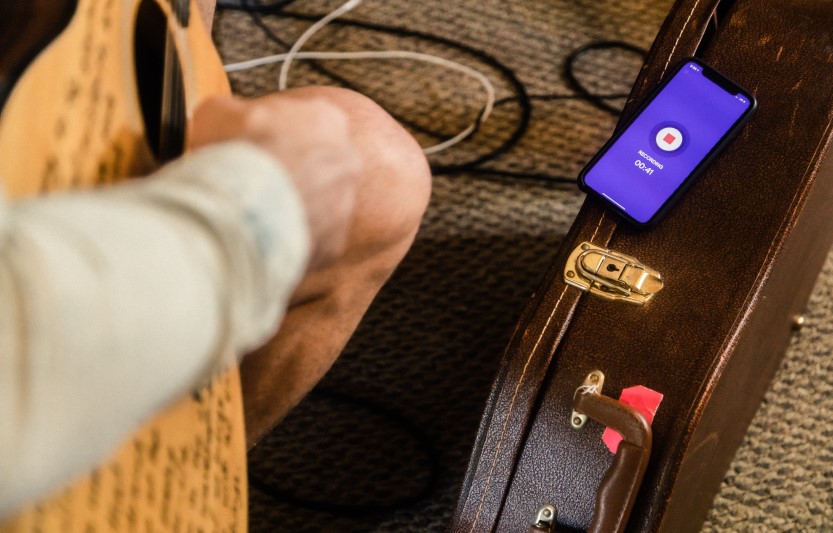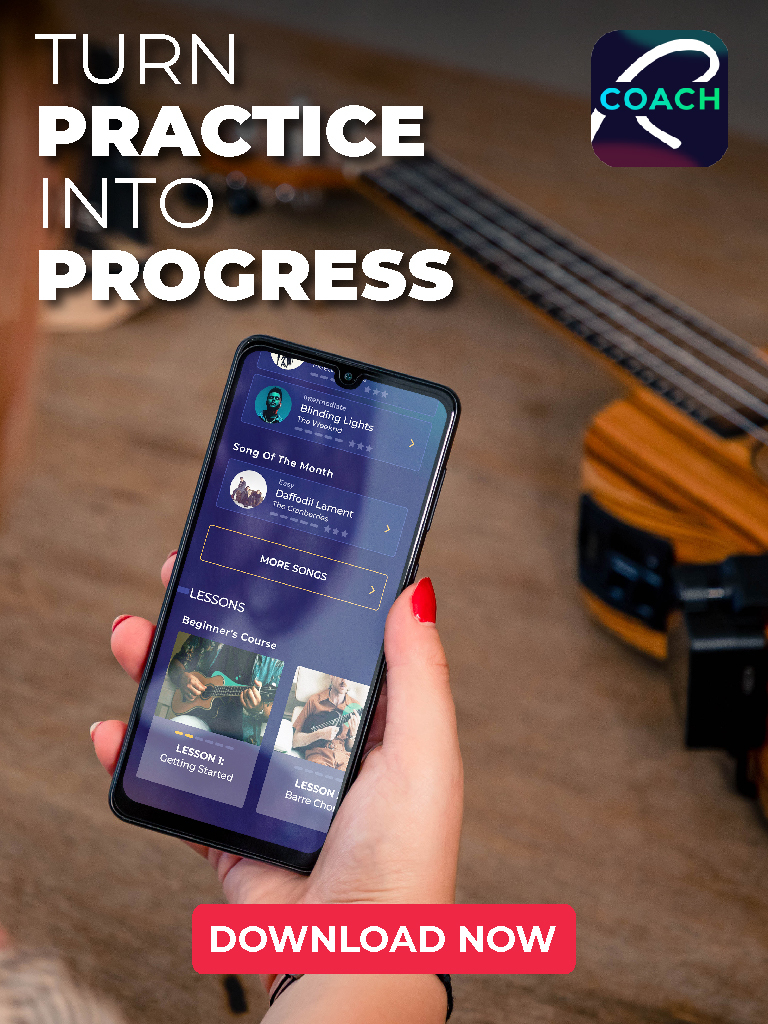
Recording yourself as part of your practice is one of the most effective ways to get better. It is also one of the most revealing, humbling, and often frustrating practices.
Perhaps this is exactly why it is such an effective way to improve. Unfortunately, the frustration it involves is also one of the reasons this practice is so neglected. After all, listening back to your recording and discovering you are not as good as you thought, can be disheartening.
The great news is that if you persevere, you will start improving almost instantly and progressing fast. Check out our very own Roadie Coach (which includes a recording feature and provides stats and feedback on your practice sessions) to help you with your progress. Let’s take a look at the reasons you should consider recording yourself as part of your practice.
You will know what your flaws are
Recording yourself will reveal your flaws like no other practice can. This is partly because you will be solely focused on listening. When you play, there is so much going on that you cannot process what you are hearing the same way as when you are not playing. This is precisely why recording yourself and listening back will reveal your flaws.
How is your time? Do you have a tendency to rush? Perhaps you drag the tempo at a particular part of a piece? These issues can go unnoticed while you play, but they will typically become obvious when you hear yourself on a recording. Naturally, this is quite frustrating, but it will let you pinpoint your flaws. You can then isolate the trouble passages or bad tendencies and work on them.
You will be able to track your progress accurately
Some musicians often feel disappointed by a perceived lack of progress. Others don’t think much about progress and keep playing aimlessly, leading to unnoticed stagnation on the instrument. If you record yourself, you will hear precisely what has changed, and what has not.
For instance, if you have been learning a challenging solo, recordings that are weeks apart will reveal a lot. You will immediately notice which recording is better, and where you keep making the same mistakes. Knowing whether you are making progress is important to keep your spirits up and fix whatever flaws you keep repeating on your playing or singing.
You will develop a “showtime” mentality
When you record yourself, there is a tendency to try to do it as well as possible. This feeling is relatively similar to playing a show or going on an important recording session. Contrast this with just practicing with no way to measure anything and the ability to stop at any time without any consequences.
When you record yourself, you will want it to be a faithful representation of your abilities at that moment. That will keep you on your toes and force you to have a “showtime” mentality whenever you begin to record.
You will develop better criteria
The act of recording yourself and then listening to judge your playing will help you develop stronger criteria. With time, you will not only notice your tendencies or bad habits, but you will also want to keep up the good stuff. For instance, you will be more critical of the sound you are producing and aim to make it consistent. That is true whether you practice guitar, singing, or bass, etc. It will help you develop a vision and something to aim for. This is especially true if you also listen to other peers on your instrument and try to take what you like about their sound and touch it and apply it to yours.
Recording yourself as part of your practice is a highly effective, yet underrated tool. It is important to keep in mind that it does not matter what gear, DAW, or process you use to record. Whatever works for you is what you should do. Remember to have fun, and breathe deeply whenever you will those waves of frustration come at you. We all get them from time to time. Now, press that red record button and enjoy!

